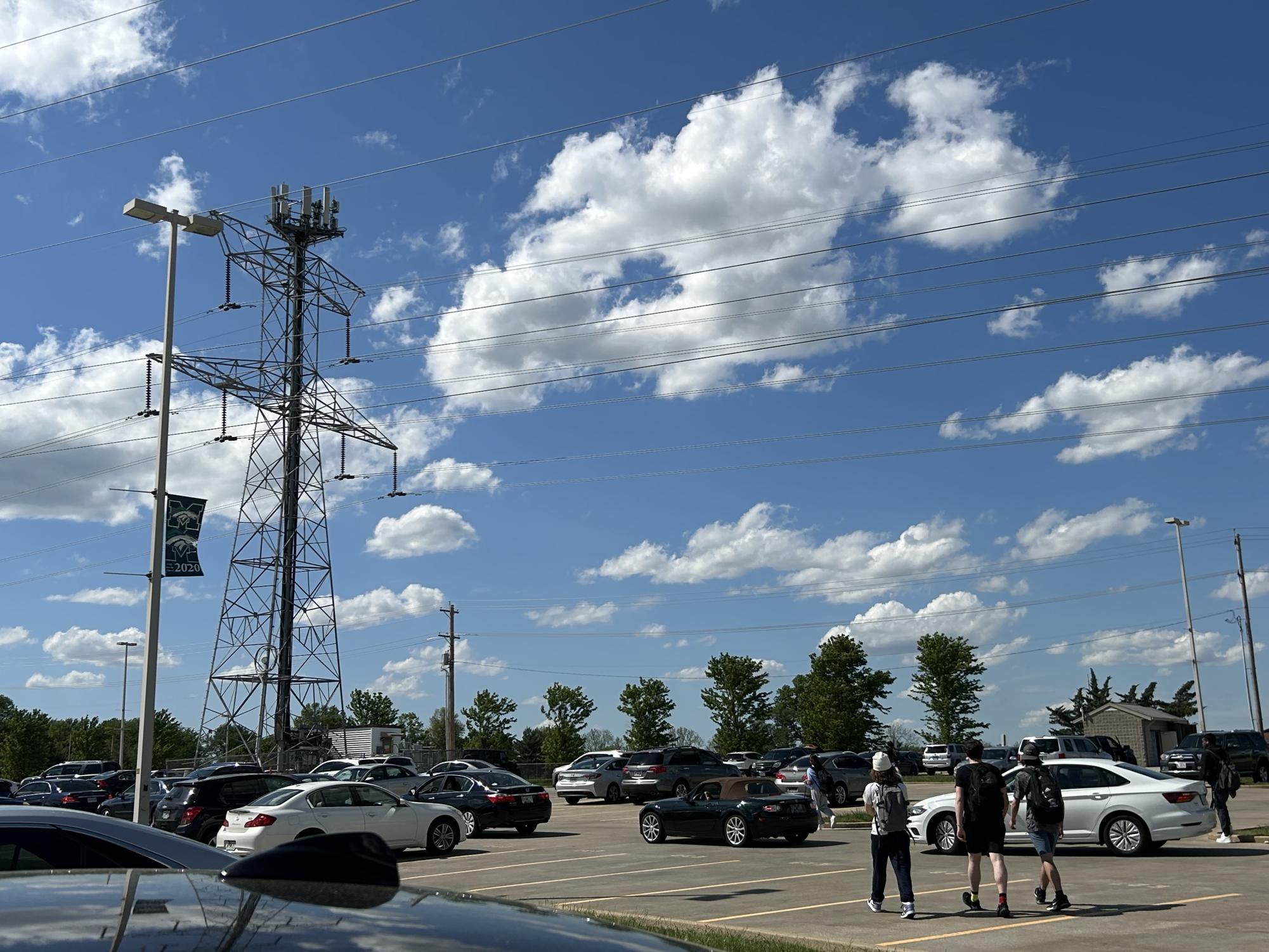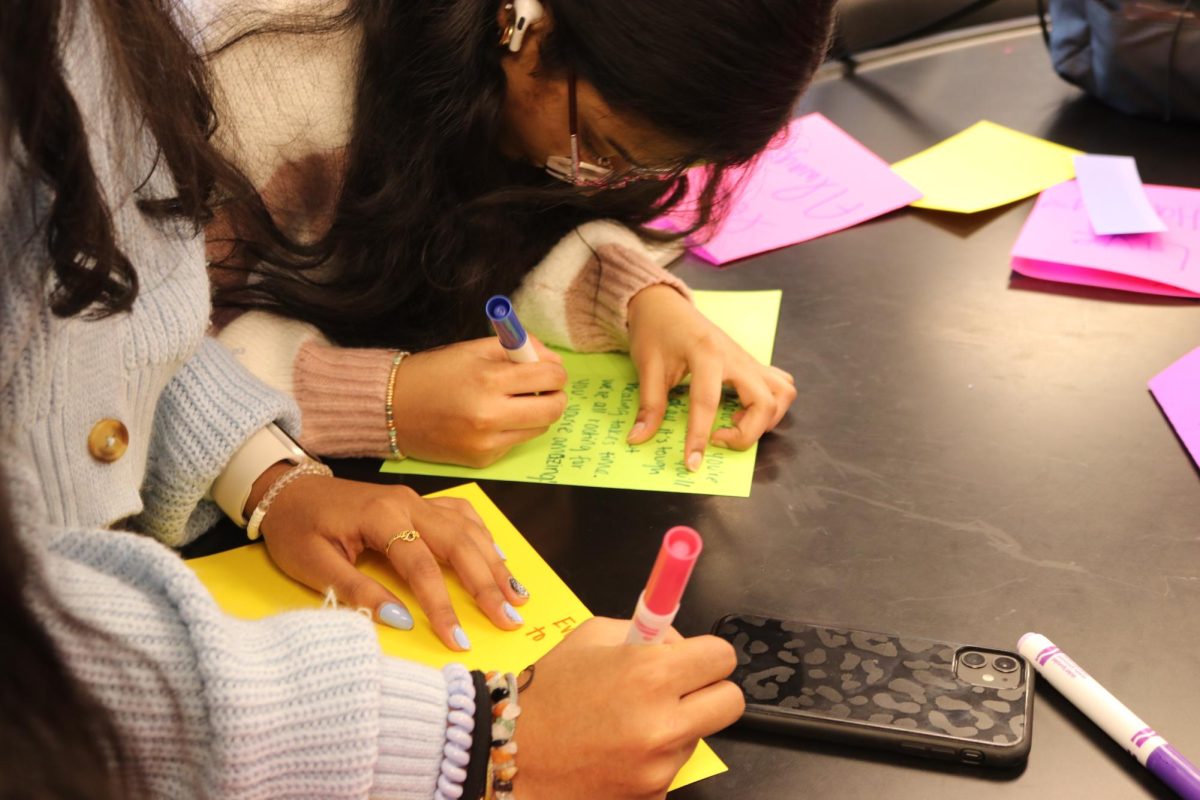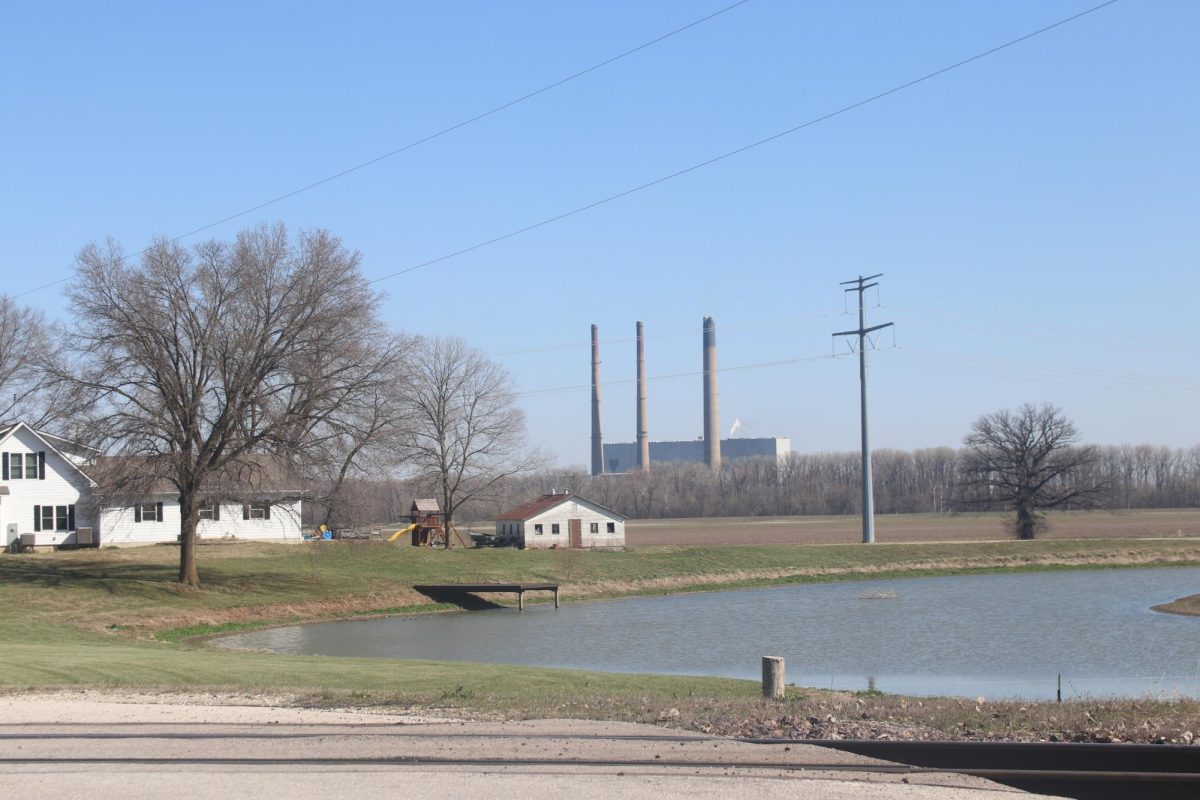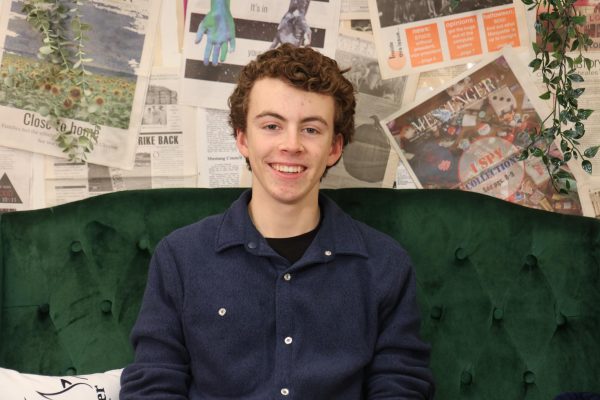For Yaw Oduro, freshman, electricity wasn’t always as simple as flicking a switch.
Oduro was born in South Africa and lived there for 14 years. South Africa began experiencing chronic power outages due to aging energy infrastructure and delayed governmental response. Since 2007, the country has had scheduled load-shedding, alternating periods in which cities and regions lack electricity each day to save power, according to the Kleinman Center for Energy Policy.
Without power, people couldn’t use water or bathe before going to school, Oduro said. Doing laundry and charging devices was challenging.
“They would have to call off school early when the power went out,” Oduro said.
Worldwide, nearly 1 out of every 10 people lack reliable electricity, according to data from the U.S. Energy Information Administration.

A reliable energy grid is essential for the daily function of the school. Electricity plays a major role in the classroom for running smartboards, Chromebooks and operating computer labs and printing services.
Principal Dr. Tracey Waeckerle said MHS has made strides to conserve energy over the past 30 years. Many areas of the building now have motion sensor lights, which turn off when no one is present.
“On long breaks, we always send out reminders to teachers to unplug things that aren’t essential when people aren’t here,” Dr. Waeckerle said. “We ask students to charge Chromebooks at home and have those prepared so we’re not having things plugged into outlets all day excessively.”
Dr. Waeckerle said there are no specific plans in place for major energy efficiency improvements, but when periodic renovations do occur, energy-efficient lighting and equipment are installed.
Bill Branson, coordinator for maintenance and grounds service in the district, said the district is currently in a retro-commissioning program. The district is evaluating and tweaking the performance of existing buildings’ electricity efficiency.
“Some of the last things that we renovated at Marquette were the STEM labs,” Branson said. “Focusing on the energy efficiency of the equipment is part of the equation as we move forward.”
Branson said the district has focused on upgrading roof systems, installing higher efficiency HVAC systems and energy-efficient boilers, updating lighting systems, adding energy-efficient appliances and technology and adding water-saving strategies such as “smart” irrigation systems.
Local Power
While the district moves toward greater energy efficiency, Ameren, the power company that supports the St. Louis region, is making a gradual shift to cleaner and renewable energy sources as well.
Currently, Ameren’s target is to install 5400 megawatts (MW) of wind and solar power by the mid-2030s. Although no specific plans exist for renewable energy centers near MHS, Ameren will install several energy facilities near the St. Louis region to produce electricity where it is consumed the most.
Scott Wibbenmeyer, senior director of renewable development at Ameren, is in charge of Ameren’s switch from fossil fuels to renewable energy.
“Missouri right now receives the majority of its energy from fossil fuels and has a balanced mix of about 15% renewables and some nuclear as well,” Wibbenmeyer said.
Missouri right now receives the majority of its energy from fossil fuels and has a balanced mix of about 15% renewables and some nuclear as well,
— Scott Wibbenmeyer
Labadie Energy Center, 22 miles from MHS, is the largest coal-fired power plant in Missouri and generates 2,389.4 MW of electricity per hour. Labadie is most important power producer in the St. Louis region.
All of Ameren’s energy plants are connected to Missouri’s energy grid, Wibbenmeyer said.
“If Labadie goes offline, you won’t lose power for that reason,” Wibbenmeyer said. “So if Labadie is turned off, which we do for maintenance, the lights don’t go out.”
Like most of Ameren’s fossil fuel power plants, Labadie has provided energy for decades. Labadie Energy Center began operating in 1973 and continues to generate electricity at full capacity.
Missouri energy rates remain low because many coal and gas plants were not installed recently and are partially paid for.
“Ultimately, it’s just become so old that it needs to retire, like any old device or person,” Wibbenmeyer said. “We’re going to run it until its end-of-life to make sure we’ve gotten all the value out of it for our customers.”
Wibbenmeyer said Ameren invests in Labadie to ensure it operates reliably as Ameren transitions to a new power fleet over the next 20 years.
Future of Electricity
Kevin Koch, AP Environmental Science teacher, said a “smart-grid” approach is best for the future of the U.S. electricity grid due to the environmental costs of centralized power centers.
“You would have multiple energy generation sources besides one centralized plant like most of the U.S. energy production,” Koch said.
Koch said the Parkway School District is a model to look at for this, as each building generates some of its energy with rooftop solar arrays.
“Our school and district is doing what it can to improve energy use,” Koch said. “MHS could generate some of its power using solar generation; however, this would take approval by the board and the community.”
Our school and district is doing what it can to improve energy use. MHS could generate some of its power using solar generation; however, this would take approval by the board and the community.
— Kevin Koch
Branson said the district has considered solar power a few times over the years but it has never gone further than the planning phase. The maintenance of solar panels and the roof below is a big reason why the district has strayed from getting solar panels.
“Solar panels and their supports can get in the way of locating and repairing roof leaks. If a roof system replacement is planned, then the panels have to be removed, stored, then put back in place when the job is complete,” Branson said. “This adds a significant cost to a roof replacement project.”
Annemarie Nauert, Ameren renewable energy program supervisor, said Ameren is trying to offer more affordable ways for nonprofit organizations, including schools, to get solar panels.
“Solar is part of an overall solution to grid reliability, customer affordability and moving toward sustainable energy,” Nauert said.
Additional reporting by Willem Hummel











